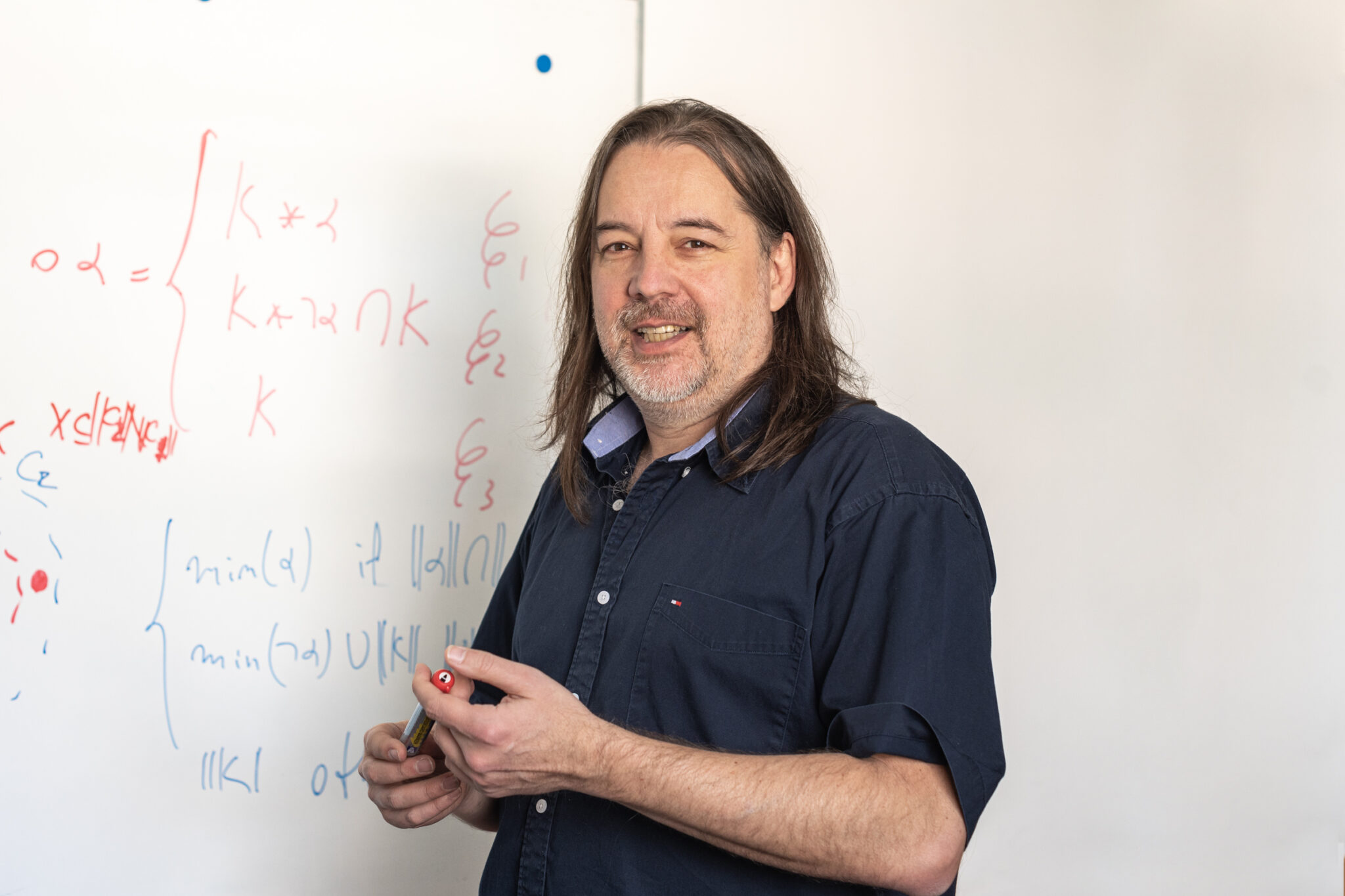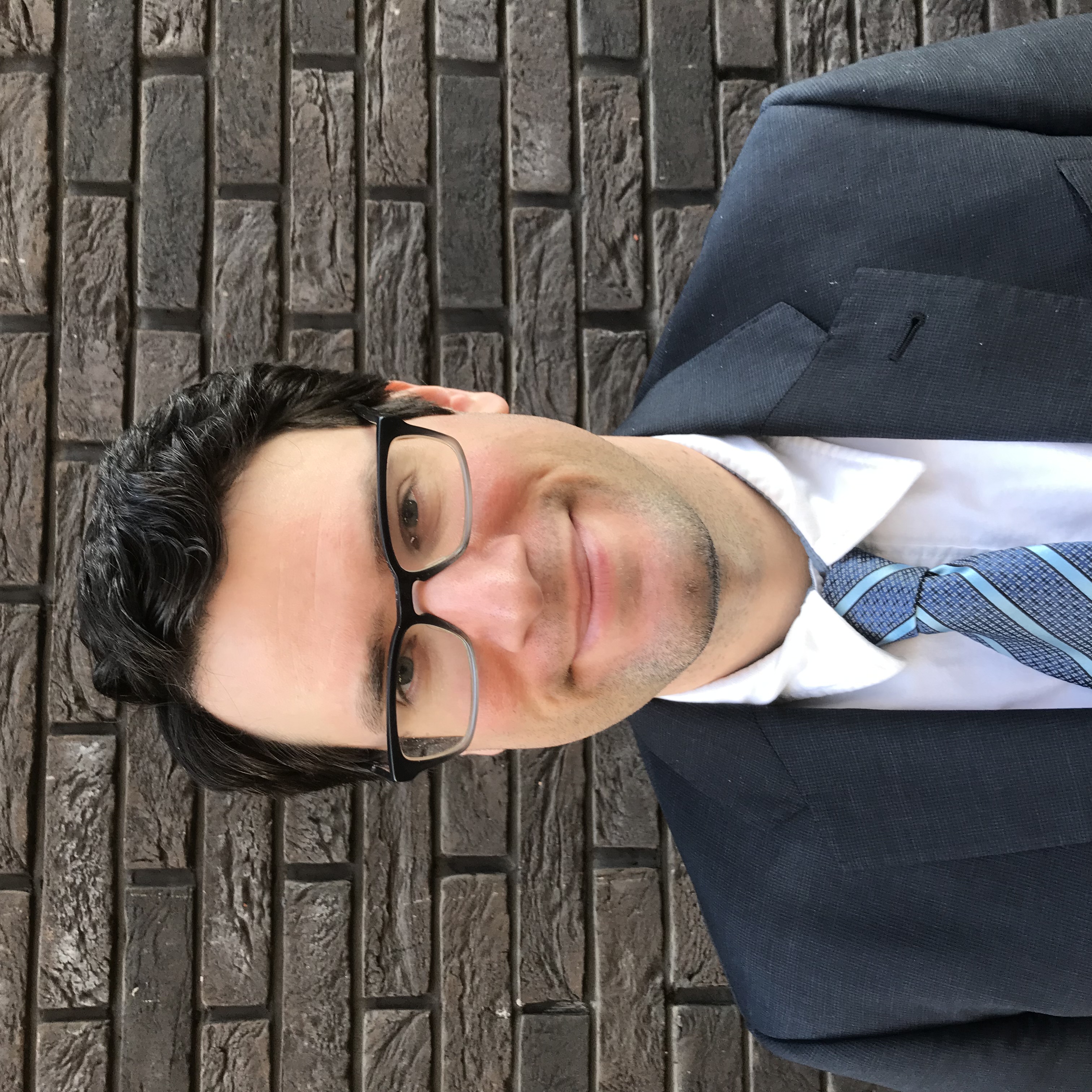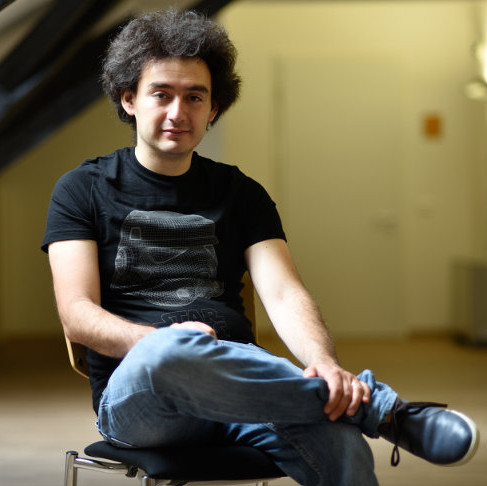
Eduardo Fermé
Eduardo Fermé, PhD in Philosophy by the Royal Institute of Technology (KTH), Sweden, and in Computer Science by the University of Buenos Aires (UBA), Argentina. Full Professor at Faculty of Exact Science and Engineering (FCEE) from University of Madeira (UMa) and Member of the General Council at UMa. Member in The NOVA Laboratory for Computer Science and Informatics (NOVA LINCS), Collaborator of the Madeira Interactive Technologies Institute at the University of Madeira (MITI) - LARSyS: Laboratory for Robotics and Engineering Systems, and of LIAMF (Laboratory of Logics, Artificial Intelligence and Formal Methods). Computer Science Department. University of São Paulo (USP/SP). Chair of 10 Scientific Projects since 2001, Senior researcher in 5 projects since 1997, supervised 4 Postdocs researchers, 7 Doctoral Thesis (4 ongoing) and more than 34 master’s dissertations (5 ongoing). Chairman of 12 Scientific Encounters, currently is member of the Steering Committee for 2 international Workshops, and Editorial Board of 4 Journals related to Artificial Intelligence. Author of 1 scientific book in Dynamic of Knowledge / Logic of Theory Change., 6 Edited Books/ Special Issue of Journals, Guest Editor in 3 special journal issues, 34 papers in Peer-Reviewed International Journals, including top journals as Artificial Intelligence and Journal of Symbolic Logic, 11 Book Chapters in scientific books and more than 30 papers in Refereed International Conference Publications, including top Conferences like IJCAI, ECAI, KR.
On belief update according to Katsuno & Mendelzon: Novel insights.
Abstract: The aim of Belief Change Theory is to provide a formal framework for understanding how an agent’s beliefs evolve in response to new evidence. Over the past 35 years, various operators have been proposed to handle different types of situations and evidence. The core of this theory consists of belief revision operators, which are designed to update an agent’s beliefs based on more reliable evidence. The standard model is the AGM revision, proposed by Alchourrón, Gärdenfors and Makinson.
Another important class of operators are update operators proposed by Katsuno and Mendelzon in 1991 (KM-update). The difference between revision and update operators is that revision operators aim to correct an agent’s beliefs, whereas update operators aim to incorporate the results of a change in the world, without presuming that the agent’s previous beliefs were incorrect. This difference is often summarized as belief revision being concerned with changing beliefs in a static world, while update is concerned with the evolution of beliefs in a dynamic world.
In this presentation, we will showcase recent research that revolves around the KM-update model of belief change.
-
The model’s efficacy in accurately capturing changes occurring in the world. We will introduce some philosophical and technical aspects on this point. KM-update assumes that any situation can be updated into one satisfying that input, which is unrealistic. To solve this problem, we must relax either the success or the consistency principle. We propose and characterize a model where not all the input are “reachable”.
-
The interconnection between KM update and AGM revision. We will examine the relationship between these two approaches.
-
The iteration of update. We will explore the methodology of incorporating iterative updates, drawing inspiration from the work of Darwiche and Pearl of iterated AGM revision.
By delving into these areas, we aim to provide a comprehensive understanding of KM-Update and its associated research developments.

Jesse Davis
Jesse Davis is a Professor in the CS department at KU Leuven, Belgium. His research focuses on developing novel artificial intelligence and machine learning algorithms, with a particular emphasis on analyzing structured data and combining learning and reasoning. Jesse’s passions lie in using these techniques to make sense of lifestyle data, address problems in (elite) athlete monitoring and detecting anomalies. He is particularly well known for his work on sports analytics, which has attracted significant interest from practitioners and the media. Prior to joining KU Leuven, he obtained his bachelor’s degree from Williams College, his PhD from the University of Wisconsin, and completed a post-doc at the University of Washington.
Jesse co-founded and serves on the board of directors of the KU Leuven spinoff runeasi. This company offers a wearable solution that provided real-time biomechanical feedback about an individual’s running pattern.
Reasoning about Tree Ensembles
Abstract: Tree ensembles such as (gradient) boosted trees and random forests are a popular class of models that are often used in practice. Unfortunately, merely achieving good predictive performance is insufficient for a deployed model because it is important to assess other factors such as a model’s robustness and explainability. However, like other expressive model classes (e.g., neural networks), it is challenging to learn robust models where decisions can be explained. For example, it is often possible to flip an example’s predicted label by applying a tiny, specifically constructed perturbation. This type of behavior is undesirable because it degrades a model’s performance and erodes a user’s trust in the model. This talk will argue that the solution to this problem is to develop techniques that are able to reason about a learned model’s behavior. Moreover, I will advocate that using such approaches is a key part of evaluating learning pipelines because it can help debug learned models and the data used to train them. I will present two approaches for gaining insight into how a model will behavior. First, I will discuss a generic approach for verifying whether a learned tree ensemble exhibits a wide range of behaviors. Second, I will describe an approach that identifies whether the tree ensemble is at a heightened risk of making a misprediction in a post-deployment setting. Throughout the talk I will use several illustrative examples from real-world applications, with an emphasis on applications in professional soccer.

Rafael Peñaloza
Rafael Peñaloza is an Associate Professor at the University of Milano-Bicocca, Italy. His main research interests revolve around knowledge representation and reasoning, with a special focus on description logics. He is mainly interested in methods for dealing with imperfect knowledge, including uncertainty, vagueness, and inconsistency. More recent work considers the representation of process models, and how they are affected by uncertainty. Beyond the main topics of research, Rafael has a passion for literature and for its relation to mathematical themes.
Mixing Time and Uncertainty. A Tale of Superpositions
Abstract: Formalisms capable of dealing with time and uncertainty are necessary for modelling the existing knowledge of (business) processes which must interact with an unreliable environment. Yet, combining time and uncertainty is far from trivial and can easily lead to undecidability, making those formalisms useless in practice. A recent proposal for probabilistic temporal logic uses the idea of quantum superposition, where an object simultaneously has and does not have a property, until it is observed. We apply this superposition semantics to Linear Temporal Logic, and show how it can be used for Business Process Modelling tasks.